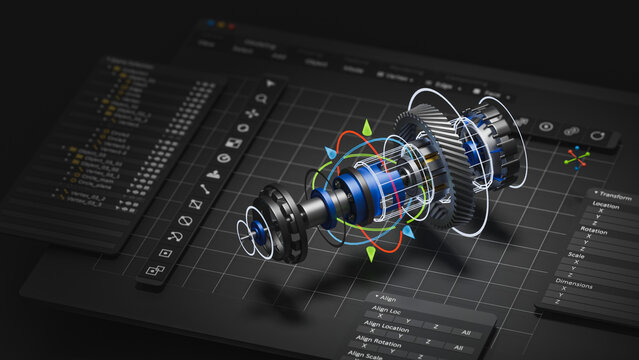
Mechanical design engineers are the masterminds behind the innovative products and machines that we use in our daily lives. Their job is to create precise and functional designs that meet the needs of various industries, from automotive to aerospace. Through a combination of creativity, technical knowledge, and problem-solving skills, mechanical design engineers bring ideas to life and ensure that they work efficiently and effectively.
The Role of a Mechanical Design Engineer
As a mechanical design manipulate, you will be responsible for the entire design process of a product, from conceptualization to production. Your main tasks will include:
Conceptualization
- Brainstorming and creating design concepts based on the requirements provided.
- Performing research to understand the market and technology trends.
- Developing sketches and 3D models to visualize the product.
Analysis and Testing
- Conducting stress analysis and simulations to ensure the design meets the required specifications.
- Testing prototypes to identify potential flaws and areas for improvement.
- Collaborating with other engineers to optimize the design for performance and manufacturability.
Documentation and Communication
- Creating detailed technical drawings and documentation for production.
- Communicating with suppliers and manufacturers to ensure the design can be produced efficiently.
- Presenting design concepts and proposals to clients and stakeholders.
Skills and Qualifications
To excel as a mechanical design engineer, you will need a combination of technical skills, creativity, and attention to detail. Some of the key skills and qualifications required for this role include:
Technical Skills
- Proficiency in computer-aided design (CAD) software such as SolidWorks, AutoCAD, or CATIA.
- Knowledge of engineering principles and material properties.
- Experience with finite element analysis (FEA) and other simulation tools.
Soft Skills
- Strong problem-solving and analytical skills.
- Excellent communication and teamwork abilities.
- Creativity and innovation in design solutions.
Education and Experience
- A bachelor's degree in mechanical engineering or a related field.
- Previous experience in mechanical design or a related field.
- Professional certifications or licenses may be required depending on the industry and location.
Challenges and Rewards
Working as a mechanical design engineer comes with its own set of challenges and rewards. Some of the common challenges faced by mechanical design engineers include:
Complex Design Requirements
- Meeting tight deadlines and design specifications can be challenging, especially for complex products.
- Balancing form, function, and cost constraints to create a successful design.
Technical Limitations
- Dealing with technical limitations such as material properties, manufacturing processes, and budget constraints.
- Finding innovative solutions within these limitations to achieve the desired design goals.
Despite these challenges, being a mechanical design engineer can be highly rewarding. Some of the rewards of this profession include:
Creative Freedom
- Having the opportunity to bring your creative ideas to life through design.
- Seeing your designs come to life and making a real impact on the world.
Professional Growth
- Continuous learning and development through new projects and technologies.
- Gaining valuable experience and expertise in mechanical design and engineering.
Conclusion
As a mechanical design engineer, you play a crucial role in the development of innovative products and machines that shape our world. By combining technical expertise with creativity and problem-solving skills, you can create designs that are not only functional but also aesthetically pleasing and efficient. While the road may be challenging at times, the rewards of seeing your creations come to life and making a real impact on society make it all worthwhile.

